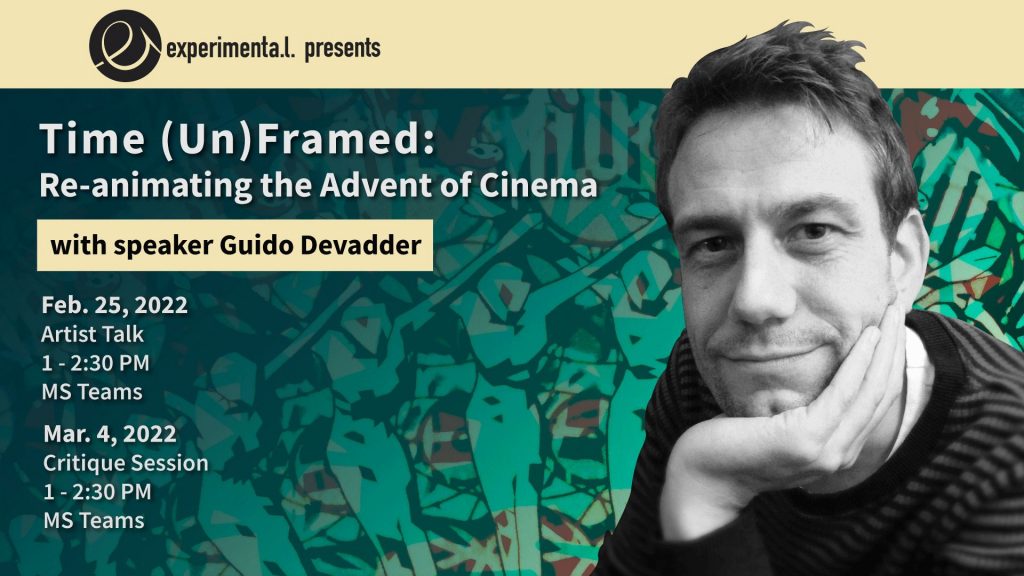Music and Animation Collab
In the fall 23 semester, Drs. Katrina Rushing and Christine Veras joined forces with Associate Professor of Practice Hal Gupta-Fitzgerald in a collaborative project inviting their students to work together. Students from the upper-level experimental animation and music theory courses collaborated and combined their creativity to create a project that included original animation with an original musical score. The final musical pieces were recorded in the Bass School sound studio under Gupta-Fitzgerald’s guidance and his talented student Maikhanh Ho. The final projects of this collaboration were showcased at the Jonsson Performance Hall in October.
The students were divided into pairs, one from each discipline. At the start of the collaboration, we organized a special talk with Aardman Studios director Lucy Izzard, offering inputs from her work with musicians in creating the stop-motion animation series Very Small Creatures.

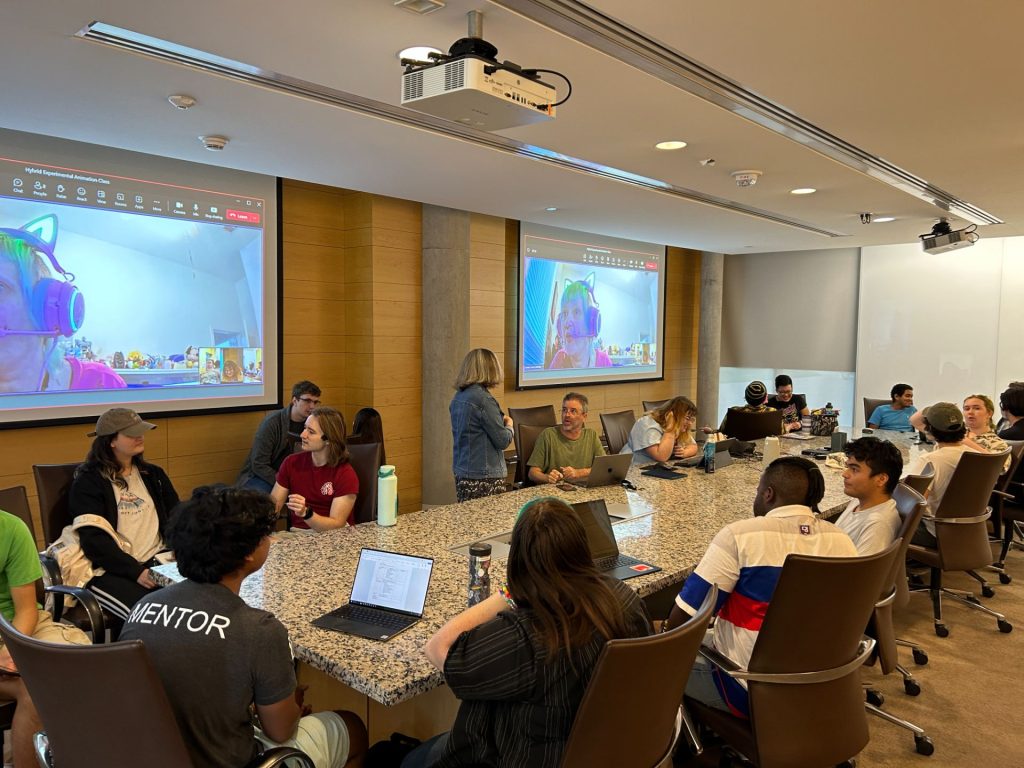
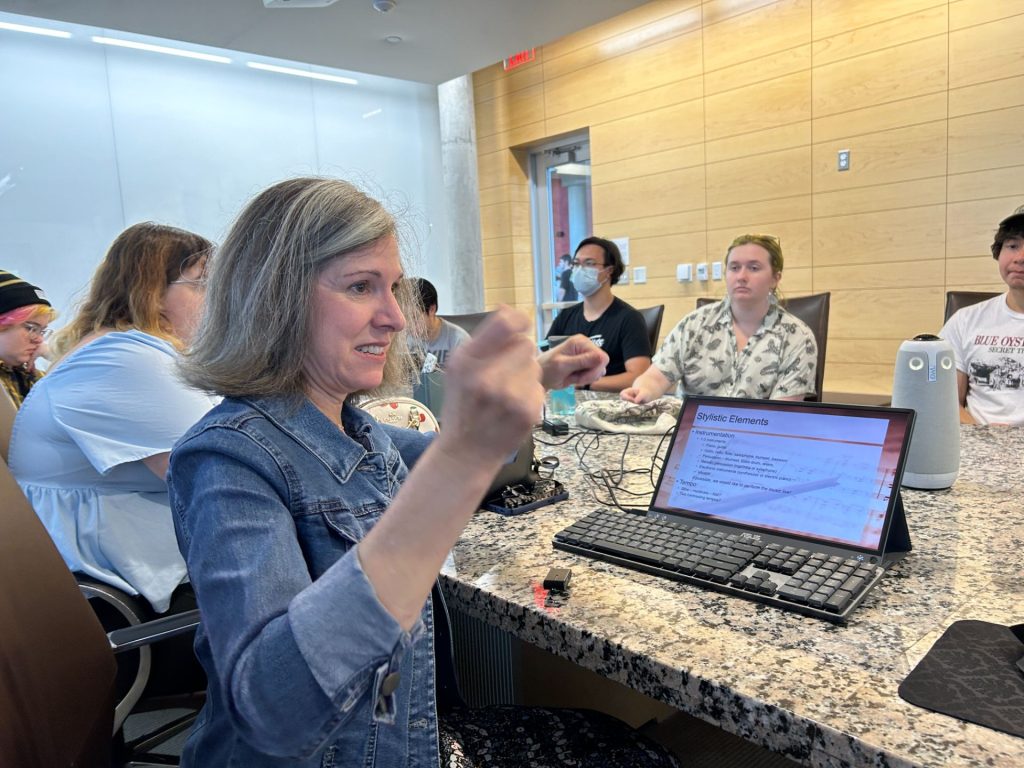
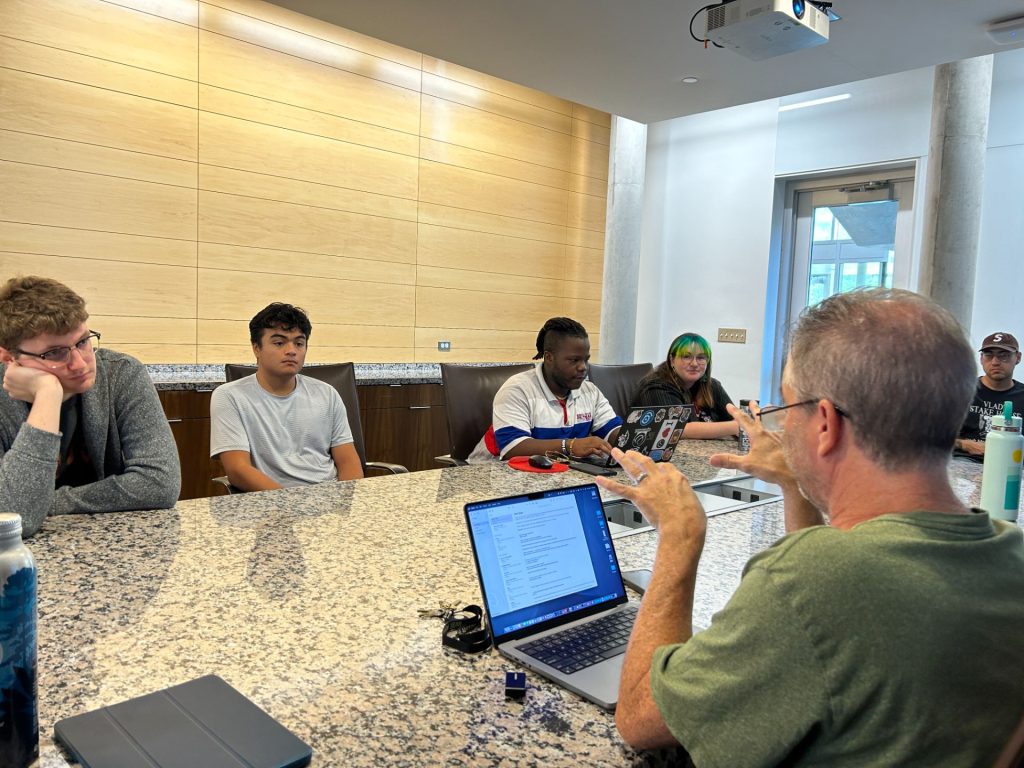
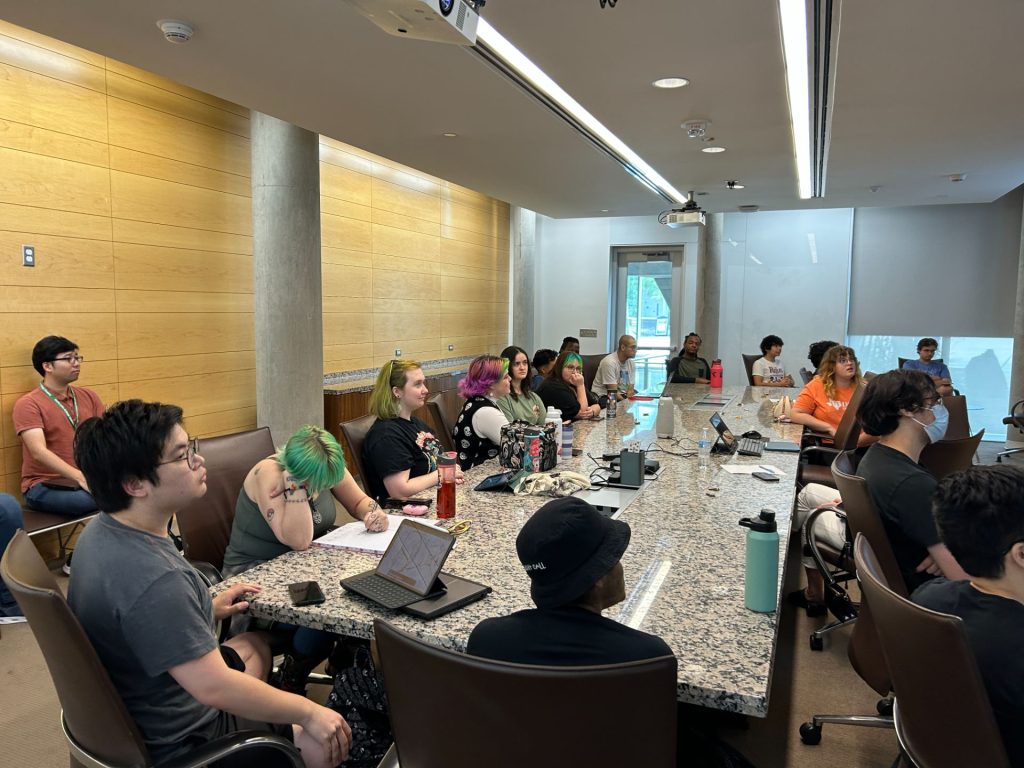
After the initial group meeting, the students shared ideas around the theme Sweater Weather, and the animators started to develop storyboards. Unlike most music/animation collaborations, the musicians were involved early in the production, offering insights and feedback throughout the creation process.




The animators provided an animatic to their partners to help them plan the key moments of the composition in connection with the action in the animation. While the experimental animators were animating, the musicians rehearsed and prepared to record the music. Associate Professor Gupta-Fitzgerald states: “During the audio production phase of this project, the focus was on precision and technical finesse. Guiding the musicians through live recording in UTD’s sound studio involved meticulous attention to equipment and acoustics. Maikhanh’s high skill level and attention to detail played a crucial role in achieving the seamless synchronization of the musical scores with each animation. The outcome is a testament to the meticulous technical execution that underpins the creative synergy between audio and visual elements in this collaboration.”












The collaboration was 7 weeks long, and before the public screening, the students presented their final animation to the group for input. Animators and musicians have learned a lot about each other’s creative process and production.














The final projects were shared with the public, family, and friends on a special screening.



Dr. Rushing provided insights on the collaboration: “The Bass School of Arts, Humanities and Technology brings together a wide variety of creative and technical possibilities. As a music instructor, I wanted my advanced music theory students to have the opportunity to compose music for a specific purpose as well as develop collaborative skills. After discussing the mood, theme, and color scheme with the animators, the musicians composed a short piece of music to accompany the experimental animation project. Furthermore, the musicians had the opportunity to produce a live recording of their pieces in UTD’s audio engineering studio. The students gained an appreciation for the challenges of experimental animation and discovered the thrill of recording their music in a professional studio. All of the music students were excited and grateful to have this “real-world” experience! “
For Dr. Veras, “This collaboration not only showcases the immense creative potential of our students and faculty but also unfolds the creative possibilities when interdisciplinary talents converge. It was also rewarding to see our facilities in full use, in service of our creative endeavors. In this exchange, the animation students explored the intricacies of their field, sharing their creative process while gaining insights into the field of music. By engaging in this collaboration, students expanded their horizons and learned to cultivate a deeper understanding of the subtleties and challenges involved in collaborative creative projects. In summary, we all learned a lot and have started planning for future collaborations.”
Watch the animations and interviews with the students as screened at our event:

